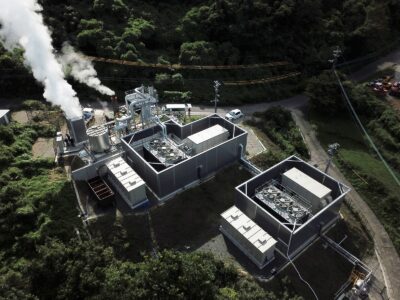Contact Energy shares details on how it grows its geothermal partnerships
How New Zealand-based Contact Energy is looking at geothermal partnerships in its sustainability efforts, but also positively expand its usage of resources of its geothermal operations in New Zealand.
In a recent LinkedIn post, James Carberry, Head of Sustainable Opportunities at Contact Energy shares details on how the company is growing geothermal partnerships in New Zealand.
We recently reported on a new supply agreement of heat with Nature’s Flame, but there is more, as he describes.
The company also renewed a similar agreement with Tenon Sawmill, to which it has been supplying heat since 2007, having now agreed on a 20 year supply agreement.
With those partnerships, Contact Energy aims “to establish long-term partnerships with energy-intensive customers in the Taup? area, such as Nature’s Flame and Tenon, in order to supply them with renewable, geothermal heat direct to their plants. This is part of our commitment to supporting businesses to reduce their emissions as we transition towards a net zero carbon New Zealand.
These partnerships align with our triple win attitude – providing positive outcomes for both Contact and our customers whilst simultaneously reducing carbon emissions.”
At the same time, it is very clear, the company thereby also increases its revenues from the geothermal resources, increases the productivity of existing wells and clearly benefits on partnerships in the long term.
For the full article see link below.
It is naturally great to see Sustainability to be built into the DNA of a company like this, create a concrete “sustainability”-focused role, but also highlight how the company is working on identifying opportunities to pair the untapped energy “at hand” and supporting potential customers identify opportunities of replacing fossil fuel based energy sources for their operations.
Source: James Carberry, Head of Sustainable Opportunities at Contact Energy, via LinkedIn


















